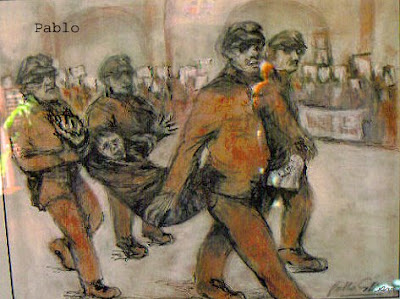 Must an artist inhabit the role she presumes to represent? How does this role connect to the political revolutionary?
Must an artist inhabit the role she presumes to represent? How does this role connect to the political revolutionary?Bile, one of Nuruddin Farah's protagonists in Links, explains, "an artist representing an image cannot presume to be an artist unless he is able to be the very figure being represented. Likewise, a man with a radical image who's spent years in detention for political reasons must act forthrightly and without fear of the consequences."
The comment links the artist and the radical. Both must act forthrightly and without fear to have an impact. But, what does it mean to be the figure being represented? An artist can inhabit the revolutionary role with an imagination that builds characters, scenes, and story through links to the real. Or, the artist can be the firgure represented and present a realist version of events from personal memory in order to convey a political point. The artist can be either inside or outside, but either way must present a threshold for the reader to pass through, which evokes meaning and provokes response. How does the artist reach that point?







